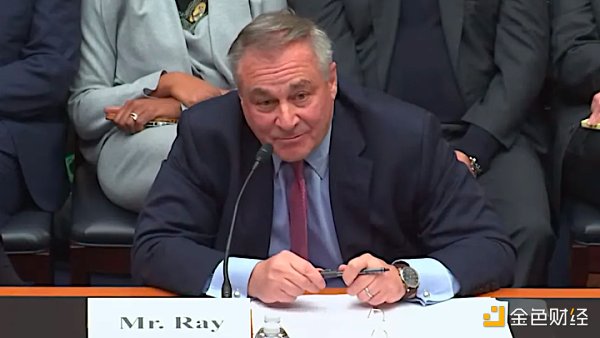Is Bitcoin safe without block rewards? It’s noisy on Twitter.
Linux Kernel developer Rusty Russell expressed concern about the gradual reduction of block rewards. In a recent article, he questioned the idea of Dan Held, co-founder of the crypto asset management platform Interchange, which believes that as the bitcoin blockchain incentives are gradually shifted from block rewards and fees to pure fee income, the network The security will not be affected.

Russell said on Twitter:
“Once the block reward ends, it’s not unreasonable to worry about Bitcoin security unless you think the $100,000 fee is reasonable.”

Held pointed out in the article earlier:
"1. The larger the Bitcoin network, the safer it is;
2. In the long run, there will be an organic security trade-off between block subsidies and transaction costs. As the network effect increases, the demand for block space increases, thereby reducing the need for block subsidies. There is empirical evidence that this is happening and the future looks optimistic;
3. Bitcoin's block space is a scarce and unique commodity whose demand will continue to increase;
4. The bull market in 2017 is not the sudden use of blockchains by millions of consumers to transfer funds around the world, and seeks to minimize transactions, volatility and coordination costs;
5. The price elasticity of Bitcoin transactions is high. Even in higher-cost environments, the demand for Bitcoin block space will increase. ” There is a point in the Held article:
"I assume that hundreds of billions of dollars in the current US dollar price will be an adequate security budget because it is unlikely that a government will waste 51% of the bitcoin blockchain by wasting a lot of money." ”
In this regard, Russell gave an example of why we must pay attention to Bitcoin security when turning to fees.
“Assume that it costs $700 million to destroy 100 blocks… At that time, the miners’ coins are beginning to disappear and the chaos is coming. This means we have to pay $700 million for every 100 blocks… We can compress approximately 10,900 inputs and outputs into one block, and the cost per transfer is $700."
Bitcoin supporter Giacomo Zucco said that halving does not mean that the purchasing power of users declines, but the income of miners will increase. He believes that the factor affecting block subsidies is whether the popularity of bitcoin is successful. In his view, once the full popularity is achieved, bitcoin transaction costs will rise, but he believes that this will only happen until the halving process is reached.
He believes that with the success of Bitcoin, the exposure is getting higher and higher, and the growth rate of block space will definitely exceed the deceleration of block subsidies.
Bitcoin block rewards will gradually decrease with halving. Does this affect network security? What do you think?
We will continue to update Blocking; if you have any questions or suggestions, please contact us!
Was this article helpful?
93 out of 132 found this helpful
Related articles
- The price of the currency should be determined by the market, and Algorand will hold a Dutch auction.
- Babbitt Column | Using Blockchain Technology to Promote Legal System Construction in Digital Society
- In the next 20 years, what new business models will be brought about by Web 3.0 based on blockchain technology?
- The Trusted Blockchain Promotion Plan Organization officially released the "White Paper on Public Chains" (with PPT Interpretation)
- SNZ Holding, a professional PoS pool service organization, joins the Wanchain Galaxy Consensus Node Program
- Block Chain Female Yang Xia: Provide military-grade security testing for blockchain code 丨 Ant blockchain competition Chengdu registration hot registration
- BSV behind the scenes gold: from the billionaire gambling rich, wanted to the "Ao Ben Cong" creator






